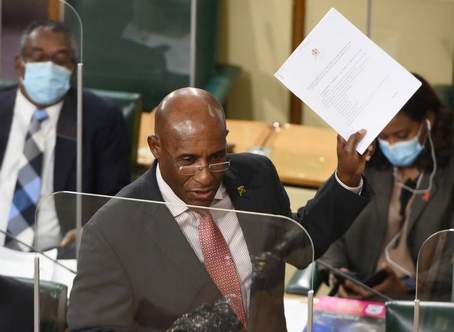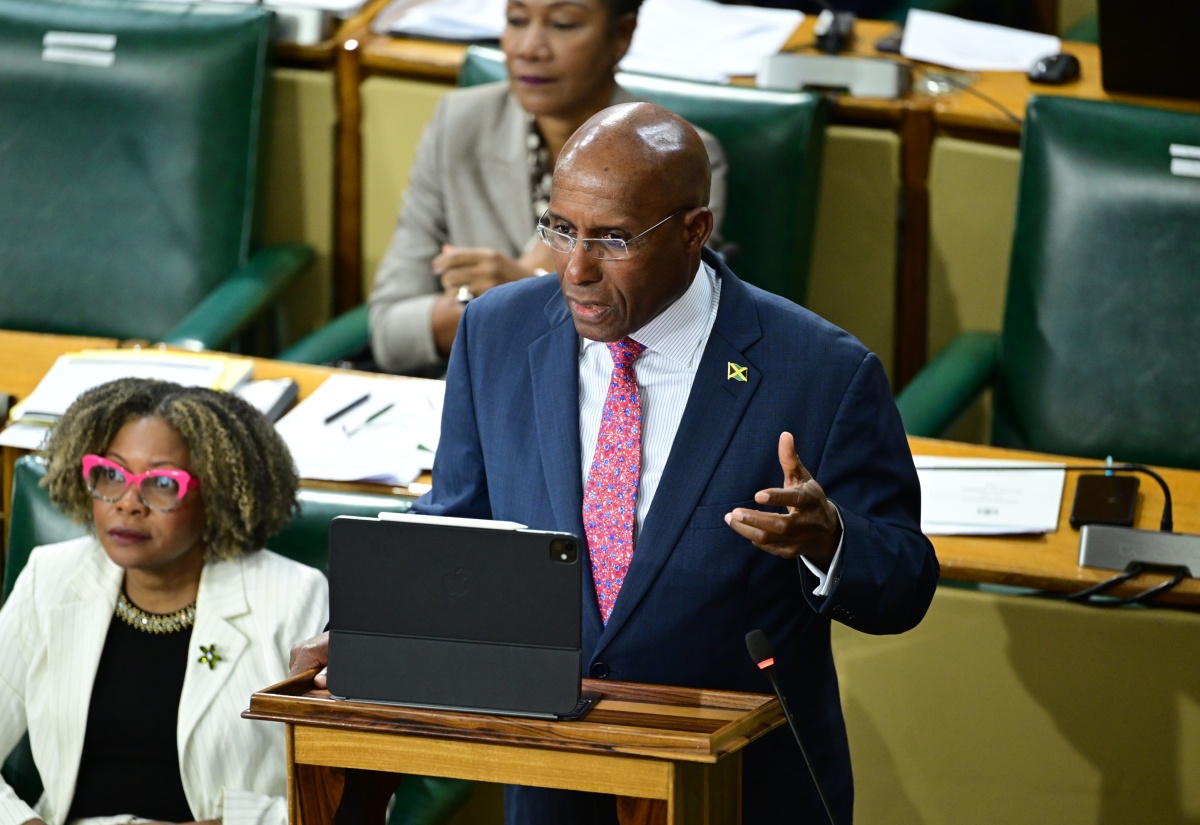‘Bad law’ Policymakers want Right of First Refusal clause removed from JPS’s electricity licence
MIIC Author

Policymakers on the parliamentary committee reviewing the 2015 Electricity Act are adamant that the Government must immediately hold talks with Jamaica Public Service Company (JPS) to remove the Right of First Refusal (ROFR) clause in its electricity licence.
Government Senator Aubyn Hill, who has been strident on shortcomings in the monopoly licence, objected to any further delay in addressing the ROFR issue.
“We as policymakers are responsible for the laws of this country, and the laws will have to change. When that law changes, people who operate in the jurisdiction will have to recognise that the law has changed. This is where we have to negotiate, because clearly, from the beginning of these discussions you just can’t get around the ROFR, and the necessity to remove it, if we are going to run our country…You don’t put this aside, you don’t avoid it, you face it and address it, that’s how business and life works. We have a job to change the law, the law is bad,” he stated at Thursday’s joint select committee meeting.
The ROFR gives the single buyer (JPS) the first opportunity to replace its existing generating capacity in accordance with certain conditions. This right also cannot be extended to any subsidiary company of the JPS.
Stakeholders in the market have argued that this stifles competition, as the traditional bidding process does not work with the ROFR in the context where the outcome is predictable.
The committee has been reviewing the law for months, taking recommendations from stakeholders in the sector, including JPS. A report is to go to Parliament shortly, even as the Government begins consultations ahead of negotiations with JPS on its 10-year licence.
Member of Parliament for Kingston Eastern Phillip Paulwell pointed out that the energy market has changed, and the Government cannot be hampered by the strictures of the current single-buyer regime, in the face of strong dissatisfaction from JPS customers.
“Customers are upset about the price of electricity, and we can’t have laboured so hard in this committee to come away with the status quo remaining. It’s just not going to be acceptable,” stated Paulwell, a former energy minister.
He stressed that with an integrated resource plan for electricity now in place, which envisages a range of new procurement and technologies, the Government cannot be stymied by a provision that will concede all of those plans to JPS implementation.
He pointed to the similar evolution in the telecoms market, which forced legislative changes at a time when the Government was saddled by a 50-year licence with the sole provider at the time.
“That licence wouldn’t have expired until 2038, but the policy dictated that changes ought to occur, and it was with that in mind that we went back and said let us be reasonable; what do you want as a company, what do we want, what can we live with,” he said.
Committee chairman and Energy Minister Daryl Vaz said 15 large corporations have so far abandoned the JPS grid in favour of other energy sources.
He also noted that the majority of the committee was in agreement with the termination of the ROFR.
“There is no two ways about that. The decision is for us policymakers to make,” he said.
The JPS contends that it has very little control and cannot decide on its own how much capacity to replace, when, and at what cost.
When the JPS appeared before the committee in July, its management cautioned the Government against touching the ROFR, arguing that major legislative changes could create uncertainty and adverse consequences in the power generation market.
President and CEO Michel Gabois said removing or diluting the JPS’s rights will reduce its ability to meet obligations. He stressed that the ROFR is one of the rights granted to the JPS as a consideration of the multiple obligations it must meet.
Gabois argued that it would be unfair to interfere with the ROFR, as it is a contractual right, and removing it could signal that those rights are not always respected.
The company pointed out that the award of the ROFR was based on the projected calculation of an avoided cost of energy over a period, based on internationally accepted principles.
This is the cost saved by JPS by buying retail energy or capacity, or both, instead of building a new plant after accounting for the capital cost and the operating cost of the plant.
The ROFR is tied to the avoided cost, as under the law the replacement cost of assets should not exceed the generation-avoided cost.
Source: Jamaica Observer
Recent News
See all news


Posted on 11/12/2025
Sygnus Real Estate Finance breaks ground for Lakespen Industrial Park
Sygnus Real Estate Finance Limited (SRF) officially broke ground on its transformative 55-acre logistics and industrial development, Lakespen Industrial Park, on Tuesday, December 9. The ground-breaking ceremony follows SRF receiving regulatory su...

Posted on 11/12/2025
Gov’t targets craft sector as new pillar of creative economy
WESTERN BUREAU: State Minister in the Ministry of Industry, Investment and Commerce Delano Seiveright has declared that Jamaica’s craft sector is poised for a sweeping overhaul as the Government moves to reposition craft not as an afterthought but...

Posted on 11/12/2025
COJ Reduces Fees for Businesses in Hurricane-Hit Parishes
The Companies Office of Jamaica (COJ) will be rolling out several measures to provide financial and economic relief for business entities in the parishes hardest hit by Hurricane Melissa. Minister of Industry, Investment and Commerce, Senator the ...









